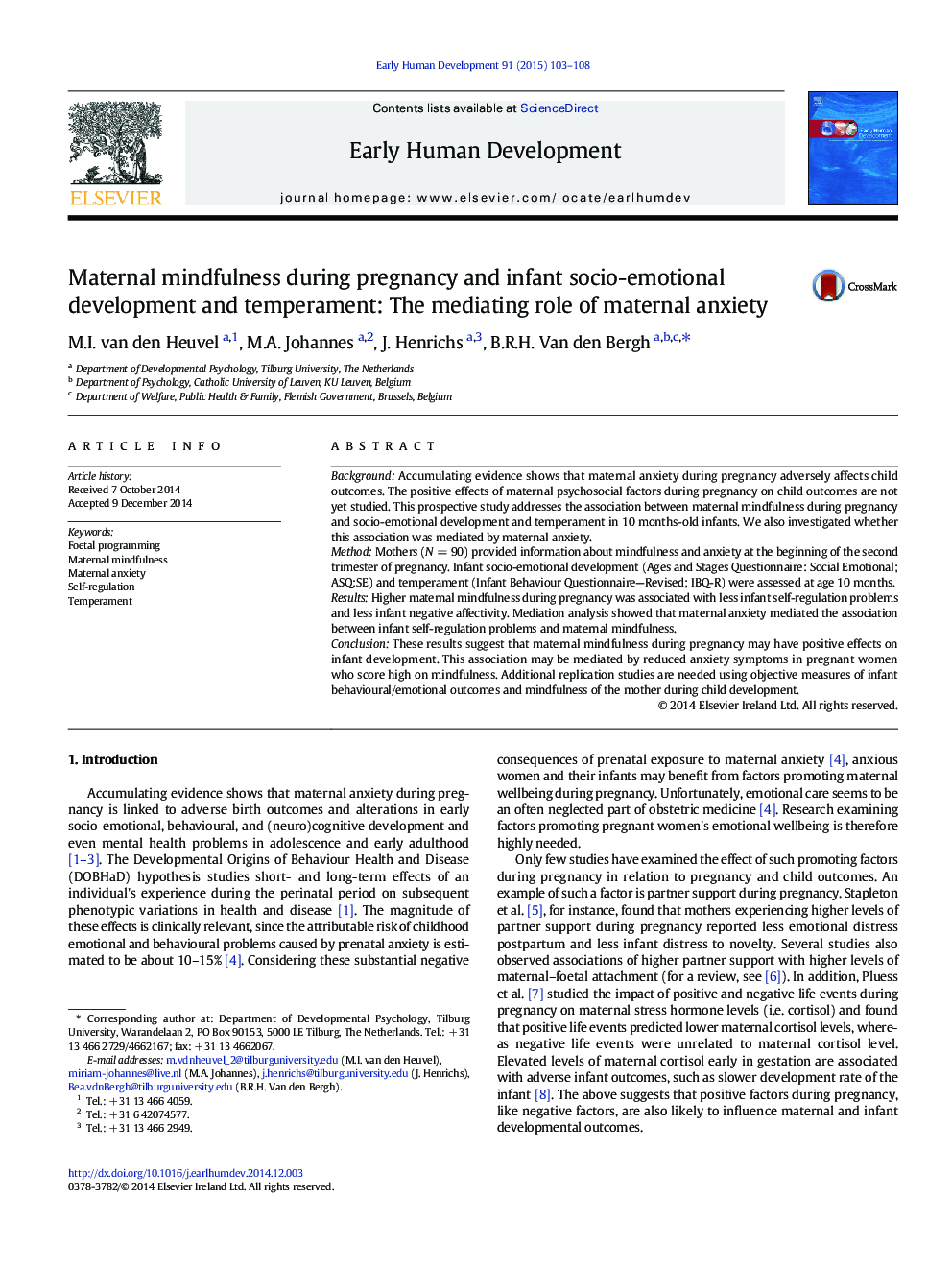| Article ID | Journal | Published Year | Pages | File Type |
|---|---|---|---|---|
| 3916461 | Early Human Development | 2015 | 6 Pages |
•We examined whether maternal prenatal mindfulness affects infant behaviour.•Maternal prenatal mindfulness reduced infant self-regulation problems.•Maternal prenatal mindfulness also reduced infant negative affectivity.•Maternal anxiety mediated the effect of mindfulness on infant self-regulation.
BackgroundAccumulating evidence shows that maternal anxiety during pregnancy adversely affects child outcomes. The positive effects of maternal psychosocial factors during pregnancy on child outcomes are not yet studied. This prospective study addresses the association between maternal mindfulness during pregnancy and socio-emotional development and temperament in 10 months-old infants. We also investigated whether this association was mediated by maternal anxiety.MethodMothers (N = 90) provided information about mindfulness and anxiety at the beginning of the second trimester of pregnancy. Infant socio-emotional development (Ages and Stages Questionnaire: Social Emotional; ASQ:SE) and temperament (Infant Behaviour Questionnaire—Revised; IBQ-R) were assessed at age 10 months.ResultsHigher maternal mindfulness during pregnancy was associated with less infant self-regulation problems and less infant negative affectivity. Mediation analysis showed that maternal anxiety mediated the association between infant self-regulation problems and maternal mindfulness.ConclusionThese results suggest that maternal mindfulness during pregnancy may have positive effects on infant development. This association may be mediated by reduced anxiety symptoms in pregnant women who score high on mindfulness. Additional replication studies are needed using objective measures of infant behavioural/emotional outcomes and mindfulness of the mother during child development.
